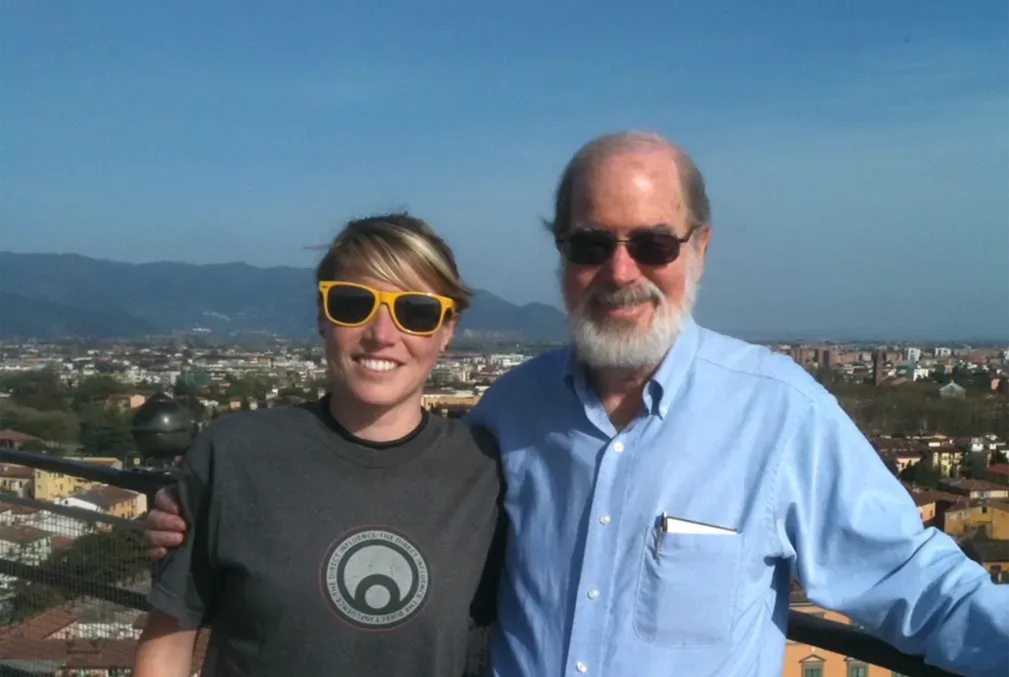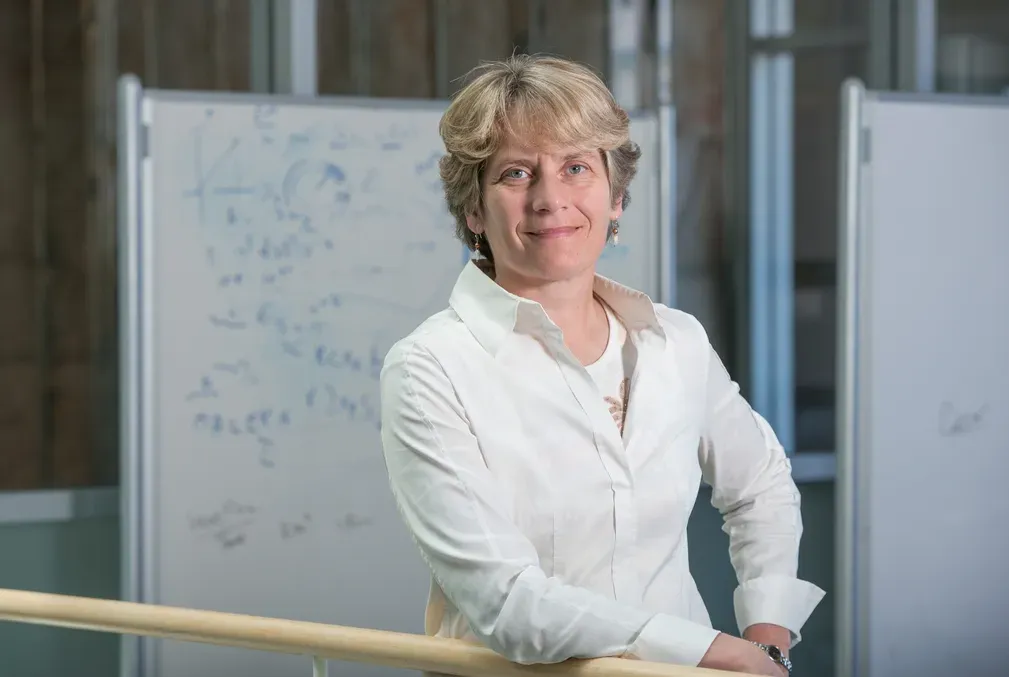
Stanford launches new data science major
New School of Humanities and Sciences major offers two degrees—a Bachelor of Science and a Bachelor of Arts—to provide undergraduates the flexibility to explore their interests across disciplines.
People produce about 2.5 quintillion—that is 2.5 with 17 zeros after it—bytes of data every day worldwide, according to a 2017 survey. Now that governments, organizations, and businesses have access to larger quantities and more kinds of data than ever before, data scientists are increasingly sought after to help mine datasets for valuable insights that can inform scientific discovery, decision-making, and policy.
Anticipating this increasing need for data scientists, Stanford’s School of Humanities and Sciences has launched a new major in data science, effective Sept. 1, that offers two tracks—a Bachelor of Science as well as a Bachelor of Arts—to create a program of scholars with diverse perspectives and backgrounds. Students in both the BS and BA tracks will complete a shared and thorough core curriculum of mathematics, computer science, statistical inference, optimization, and ethics. They will also complete a capstone project where they will apply the knowledge and skills they have acquired during their studies.
“Stanford has been ahead of the curve when it comes to preparing our students to work in the field of data science,” said Debra Satz, the Vernon R. and Lysbeth Warren Anderson Dean of the School of Humanities and Sciences. “Now that data are being produced at unprecedented rates and researchers have greater access to information on people and populations, the way we train data scientists must evolve as well.
“Students in this major will gain an excellent foundation in quantitative analysis; learn to use data to solve interdisciplinary problems; and understand the ethical implications of how data are collected and interpreted as well as the algorithms that can perpetuate bias,” Satz said. “As an ethicist, I believe it is critical that Stanford students use their knowledge to advance humanity for the better.”
Bachelor of Science pathway
The BS pathway is tailored for students interested in using analytical and quantitative thinking to tackle problems in a wide range of fields. This major is ideal for undergraduates pursuing graduate study in quantitative fields, such as computer science and statistics, or embarking on careers that require quantitative work, such as information technology and finance. The BS requires 79-90 units, including prerequisites, and offers an optional concentration that allows students to acquire depth in an area where they expect to apply data science, such as biology or engineering.
Although this major is new, data science has been part of Stanford’s DNA for decades. Stanford has a long track record of training students to be not only professionals in the field, but also pioneers. The new BS major in data science succeeds the mathematical and computational science (MCS) major, which began in the 1970s but stopped accepting new students Sept. 1. Currently enrolled MCS majors and minors will be able to complete their degrees.
“This major builds on Stanford’s tradition of using quantitative reasoning to solve complex problems in science, industry, and engineering in society,” said Chiara Sabatti, the associate director of the BS in Data Science and a professor of biomedical data science and of statistics. “Stanford has decades of learned experience in teaching and doing data science, and this intellectual framework is the basis for the new BS degree. So while students should be excited about the fact that there is something new, they should also feel reassured.
“The math classes our students take are taught by the mathematics department and are the same classes that the math majors take,” Sabatti said. Similarly, students in this major will learn computer science, optimization, statistics, and the other core competencies directly from experts in the field.
In addition to the core curriculum, students in the BS track will complete a capstone experience where they will apply their knowledge in projects that allow them to explore their interests in creative ways. They will also complete 9 units of electives and 3-5 units of Writing in the Major—a degree requirement that offers courses such as Fundamental Concepts of Analysis, Statistical Methods in Computational Genetics, and Data Narratives.
Sabatti will teach the Data Narratives course, which has been developed specifically for the new major, in spring quarter. Students in this class will hone and refine their ability to communicate ideas and insights with data—a critical part of being a successful and effective data scientist. This course delves into many components of assembling a well-crafted narrative based on data. Students will learn how different data collection processes can influence the data themselves, they will progress to data visualization and pattern detection, and they will conclude by evaluating the reproducibility of their results and quantifying uncertainty.
One distinctive feature of Stanford’s approach to the BS in Data Science is the emphasis on teaching students to master foundational courses in fields such as computer science, statistics, and optimization instead of memorizing the current methodology used by data scientists, said Guenther Walther, the faculty director of the BS in Data Science and professor of statistics.
“We teach the theory behind data science, and that has proven to be very important,” Walther said.
One benefit of this approach is that it creates more versatile and nimble data scientists. When students understand the theory, then, regardless of how the field may change in the future, they can adapt and even create their own methodology because they understand the foundations of the discipline.
“The field of data science is developing rapidly,” Walther said. “Our students will learn important foundations that enable them to design new methodologies and quickly get up to speed with new developments.”
Bachelor of Arts pathway
The new major also offers a BA degree in Data Science and Social Systems for students who want to work at the interface of statistics, computation, and the social sciences. Work in the field of data science now often requires a rigorous background in analytical and quantitative approaches as well as a deep understanding of human behavior.
“Some of the most exciting frontiers of data science exist at the intersection between the core competencies and the areas of application,” said Jeremy M. Weinstein, faculty director of the BA in Data Science and Social Systems and a professor of political science. “The BA pathway is designed to focus on one of those critical areas of intersection, which is the intersection between data science and social problems, such as health and educational disparities, poverty, and political polarization.
The BA degree requires students to choose from one of 12 pathways, such as Law and Justice, Media and Democracy, Global Poverty and Development, or a custom concentration. The BA requires 89-100 units, slightly more than the BS track, because of the additional subject matter requirements. Like the BS, the BA offers students flexibility to select courses that interest them and develop their own intellectual pathway.
This spring, the BA will launch its introductory course, Solving Social Problems with Data, involving faculty from across the university. Participating faculty will lecture on exciting topics at the intersection of data science and social science in the context of an integrated curriculum that prepares students to work at this frontier. Jennifer Pan, associate professor of communication, uses experimental and computational methods to probe large datasets on political activity in China (and other authoritarian regimes) to answer questions about how autocrats perpetuate their rule. Pan will teach a module on the social and political consequences of social media in the introductory course in the BA track. And Marshall Burke, associate professor in the Department of Earth System Science in the Doerr School of Sustainability, will teach a module on climate change and its social and economic impacts.
In addition, students in the BA track will have opportunities to apply the skills they learn in courses with a project-based component. The final capstone project will be completed in partnership with government and social sector organizations.
“This major was designed with the recognition that being a successful data scientist in the world means combining a set of experiences that you have in the classroom with a set of opportunities to apply that knowledge and skill set outside of the classroom,” Weinstein said.
“Through our major, students will develop a triple fluency: They will have the data science skill set, knowledge across the social sciences, and expertise in a particular social issue as they dive deep into a social challenge that they're passionate about,” said Mallory Nobles, associate director of the BA in Data Science and Social Systems.
Regardless of the pathway students choose, the data science major provides undergraduates with the skills to pursue a range of opportunities. The inclusion of ethics training in both the BS and BA degrees is a key and beneficial feature of this data science major.
“An overarching goal of this major is to create students with an understanding of ethics so they can think about how one wields the power of data science responsibly,” Weinstein said. “The emerging field of data science is critical to the future of industry, government, the nonprofit sector, and philanthropy. We are launching at Stanford an undergraduate pathway that gives people the toolkit they need to operate in this data-intensive world.”



